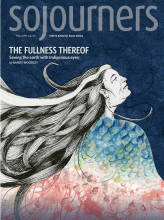JAIR BOLSONARO, Brazil’s recently elected president, chose as his campaign theme “Brazil above everything, God above everybody.” The first phrase is a shout from his days as a military parachutist and the second a nod to the growing power and influence of evangelicals in Brazil.
According to the 2010 Brazilian census, evangelicals—who control extensive media networks and are increasingly involved in politics—make up 22 percent of the population, up from only 9 percent two decades earlier.
Churches such as the Assemblies of God and the prosperity gospel-influenced Universal Church of the Reign of God have used various forms of media to reach larger audiences, starting with local radio stations in the 1960s and 1970s. In 1989, the Universal Church bought a national television network, Rede Record. It is now the second largest network in Brazil and strongly supports Bolsonaro. Today the Universal Church owns more than 20 television stations and 50 radio stations, as well as publishing companies and studios.
In 1986, when the first election after 20 years of military dictatorship was held, the number of Protestant lawmakers jumped to 36, with 20 Pentecostals joining the evangelical caucus. For the first time, a journalist used the term Bancada da Biblia (Bible Bench). Since then, the number of evangelicals has increased in each Congress, except in 2006 when several were involved in scandals ranging from a payment-for-votes scheme to the “Bloodsuckers Operation” that uncovered hospital payment fraud.
Read the Full Article

